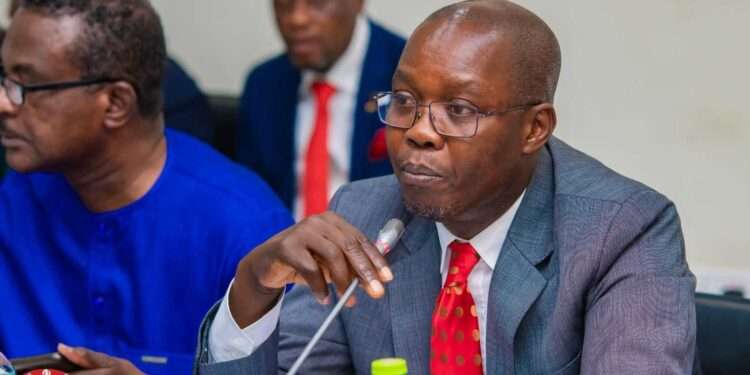Bernard Ahiafor, the Chairman of Parliament’s Appointments Committee, has advised Members of Parliament (MPs) to keep sensitive discussions private, urging them not to “wash their dirty linen in public.” His caution comes in response to recent public debates surrounding the finances of Samuel Okudzeto Ablakwa, the Member of Parliament for North Tongu, who was being vetted for his role as Minister-designate for Foreign Affairs.
A Call for Discretion in Politics
Ahiafor’s comments come after the Bimbilla lawmaker, Dominic Nitiwul, demanded that Ablakwa explain the source of funds he uses to rent his Airport Hills apartment. This question arose during Ablakwa’s vetting process, with Nitiwul claiming that the people of Ghana deserve transparency on the MP’s financial matters. Nitiwul stated, “It will help [Ablakwa] and help every politician if he is able to let the people of Ghana know where he is getting money to rent that property at Airport Hills.”
However, Ahiafor quickly intervened, urging caution. As the chair of the Appointments Committee, he emphasized that certain matters are best kept behind closed doors and should not be publicly aired. “As much as we do politics, we need to be very careful not to wash our dirty linens in public,” he said. He stressed that some discussions, especially sensitive ones, should be handled in private settings, far from the public eye.
The Ablakwa Vetting Controversy
The discussion on Ablakwa’s finances became a significant topic during the vetting process. While Nitiwul pressed for answers, the Minority in Parliament, led by Alexander Afenyo-Markin, opposed his approval. Afenyo-Markin criticized Ablakwa for failing to submit important financial documents requested by the Appointments Committee, which included details on his earnings and assets.
Afenyo-Markin argued that, as a public servant who has scrutinized the financial affairs of others, Ablakwa should be transparent when it comes to his own sources of income. He remarked, “He who comes to equity must come with equity.” Despite the opposition, Ablakwa was approved by the National Democratic Congress (NDC) Majority, while the Minority abstained from voting in favor of his nomination.
What’s at Stake for the NDC and Ablakwa?
Ablakwa, known for his vocal stance against what he refers to as “state capture” by Akufo-Addo’s appointees, has exposed several controversies, including the former President’s use of private jets for official travel. His sharp critiques have made him a well-known figure in Ghanaian politics. However, as the vetting process shows, his own financial transparency is now under scrutiny.
In the end, while the NDC Majority approved his nomination, the Minority made it clear that they would distance themselves from his financial controversies, saying, “Every sin at the Airport Hills, we are not part of.”
Ahiafor’s plea for MPs to avoid airing sensitive issues in public comes at a crucial moment in Ghanaian politics. As politicians like Ablakwa continue to fight for transparency and accountability, it’s important to remember the need for discretion and respect for privacy when handling delicate matters. In the world of politics, sometimes it’s best to leave certain discussions behind closed doors.

